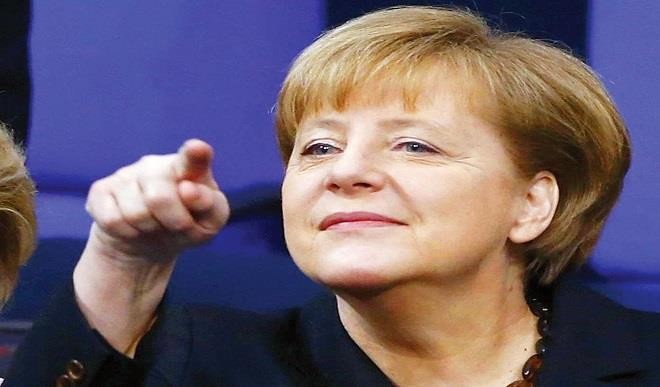-
Tips for becoming a good boxer - November 6, 2020
-
7 expert tips for making your hens night a memorable one - November 6, 2020
-
5 reasons to host your Christmas party on a cruise boat - November 6, 2020
-
What to do when you’re charged with a crime - November 6, 2020
-
Should you get one or multiple dogs? Here’s all you need to know - November 3, 2020
-
A Guide: How to Build Your Very Own Magic Mirror - February 14, 2019
-
Our Top Inspirational Baseball Stars - November 24, 2018
-
Five Tech Tools That Will Help You Turn Your Blog into a Business - November 24, 2018
-
How to Indulge on Vacation without Expanding Your Waist - November 9, 2018
-
5 Strategies for Businesses to Appeal to Today’s Increasingly Mobile-Crazed Customers - November 9, 2018
Germany’s State Elections Signal Rise of Germany’s Right Wing AfD
The right-wing populist Alternative for Germany (AfD) party clinched nearly 21 percent in its first bid for seats in the regional parliament of Mecklenburg-Western Pomerania on Sunday.
Advertisement
The right-wing populist Alternative for Germany (AfD) party clinched nearly 21 percent in its first bid for seats in the regional parliament of the north-eastern ex-Communist state on Sunday, coming second and knocking Merkel’s party into third place with just 19 percent.
Allies of Ms. Merkel in the German coalition government, such as the Bavarian Christian Social Union (CSU), have said that Sunday’s election results are a defeat for the political establishment, not just the CDU.
The German Federal elections are to be held next year, and there are rumours that Ms. Merkel may not stand again for a fourth term.
But New Year’s Eve robberies and sexual assaults in Germany blamed largely on foreigners, as well as two attacks in July carried out by asylum-seekers and claimed by the Isil group, have fed tensions.
While her welcoming stance initially won much praise, the mood has since considerably darkened as popular worries have grown about how to integrate the newcomers. The big test case ahead of the 2017 national elections will be next year’s elections in North Rhine Westphalia, a state which has more voters than all eastern German states together, Brzeski noted. “The chancellor’s job for autumn will be to reconcile the CDU party base with her own leadership”, he said.
Merkel, who was attending a summit meeting in China, waited 18 hours before addressing the unprecedented third-place finish of her center-right party in state elections Sunday in the impoverished northeastern state of Mecklenburg-Vorpommern, where she has her own parliamentary constituency.
AfD co-chief Beatrix von Storch, with her eyes on national elections next year, hailed the shock outcome as “the beginning of the end of the Merkel era”, while Bild daily labelled the result as another “slap across the face” for the chancellor.
“This was more than a small state election, it was a vote on Merkel”, said news site Spiegel Online, pointing at the “protest storm” in “Merkel’s living room”.
“The refugee crisis is damaging Chancellor Merkel’s popularity, not only in the German population but also within the government coalition”.
Mecklenburg is home to few foreigners, but Merkel acknowledged that migrant policy was a dominant theme.
Seehofer, also disclosed that the CSU has also renewed its call for the chancellor to step up border controls and impose an upper limit on the number of refugees entering Germany.
Advertisement
“I am very unhappy with the outcome of the elections”, Ms. Merkel told the press at the Hyatt hotel.





























